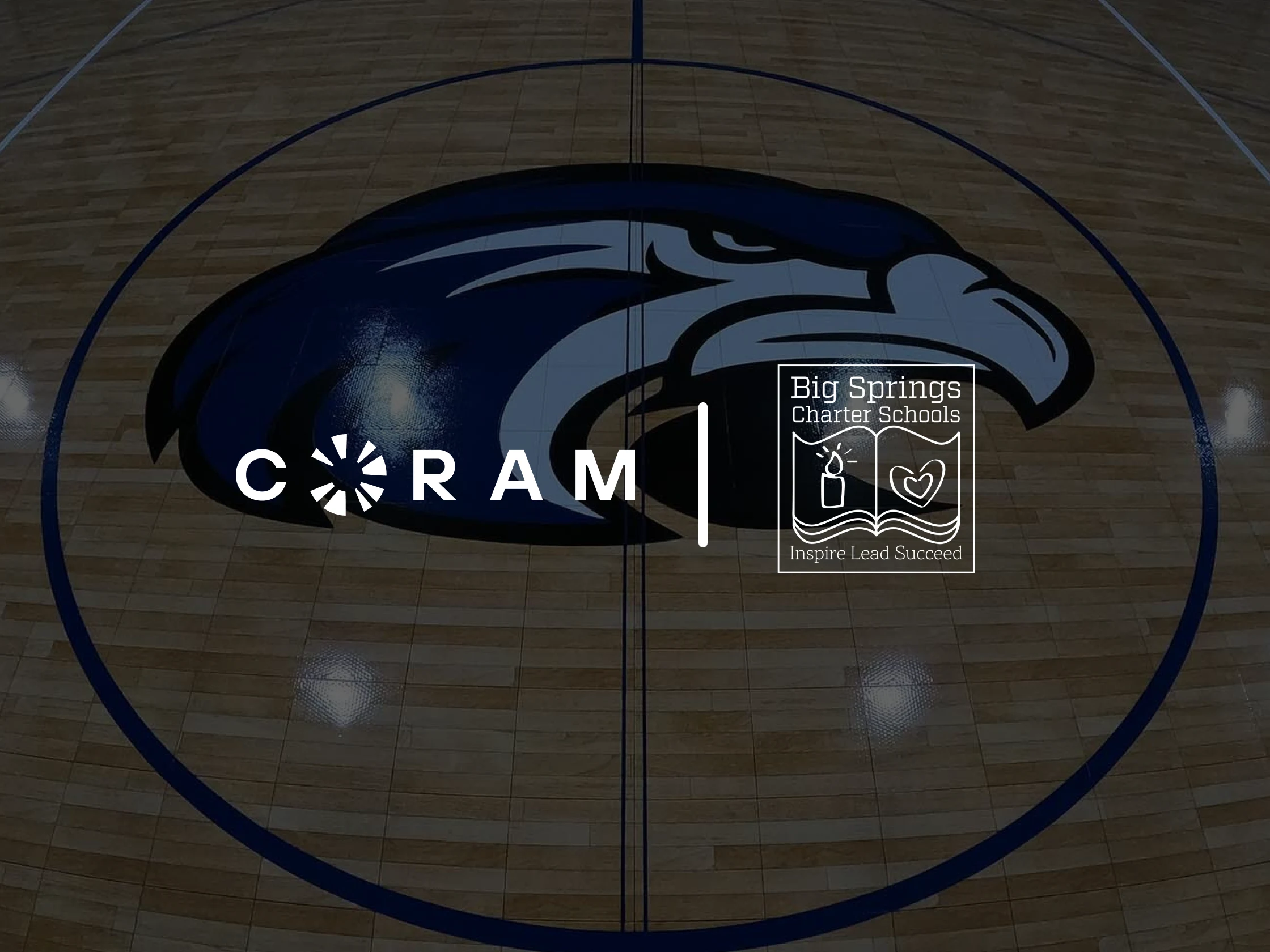Did you know,
- In 2023, the U.S. Department of Education received over 8,100 Title IX complaints, and
- By 2024, that number jumped to 11,815, marking an 18% increase and the highest total ever recorded.
A growing number of students are speaking up about unequal treatment, sexual harassment, and gender-based discrimination in schools, yet many still don’t know where to turn or how to report it.
Title IX, a federal civil rights law passed in 1972, protects students from sex-based discrimination in any school or education program that receives federal funding. That includes everything from classroom access and athletics to how schools handle allegations of harassment.
However, navigating the complaint process isn’t always straightforward -
- Who can file a Title IX complaint?
- What evidence or documentation is needed?
- How long does the process take, and what outcomes are possible?
- What protections exist for those who come forward?
Filing a Title IX complaint can feel overwhelming, especially when you're already coping with the emotional and personal impact of sex-based discrimination or harassment.
This 2026 guide will walk you through every step of the Title IX complaint process, step by step. Learn what your rights are, where to file, what to expect, and how to take action with confidence.
What Does Title IX Cover?
Title IX is a federal civil rights law that prohibits sex-based discrimination in any school or educational program that receives federal funding. Passed in 1972 as part of the Education Amendments, Title IX applies to public and private K–12 schools, colleges, and universities. That means nearly every school in the country must follow Title IX guidelines.
The law is simple in its language but broad in its reach. It states:
“No person in the United States shall, on the basis of sex, be excluded from participation in, be denied the benefits of, or be subjected to discrimination under any education program or activity receiving Federal financial assistance.” — 20 U.S.C. § 1681
Title IX covers everything from academics and athletics to extracurricular activities, housing, admissions, financial aid, and campus safety.
Here are some of the key issues protected under Title IX:
- Sexual harassment, including unwelcome conduct, sexual advances, or hostile environments
- Sexual assault (rape, groping, coercion) and other forms of sexual violence
- Dating and domestic violence
- Stalking
- Discrimination based on pregnancy or related medical conditions, such as childbirth or lactation
- Retaliation for reporting harassment or participating in a Title IX investigation
- Unequal opportunities in athletics, including equipment, facilities, and scholarships
- Gender discrimination in STEM classes and programs
- Dress code enforcement that targets or treats students differently based on sex
- Discrimination against LGBTQ+ students, including based on gender identity or gender expression
While Title IX was originally intended to promote gender equity in education, its scope has expanded significantly over the years. Today, it addresses many of the most pressing concerns students face on campus, particularly those related to safety and equal treatment.
The law requires schools to take reports seriously and act promptly. Institutions must investigate, offer support services, and take steps to stop ongoing discrimination or harassment. Importantly, schools must treat all students fairly during the process, offering due process rights to both complainants and respondents.
In recent years, updates to Title IX have added more protections for LGBTQ+ students, and new proposed rules aim to address sexual violence better while ensuring a fair process for everyone involved. For students and families, understanding what Title IX protects is the first step toward knowing when to speak up and how to take action when something isn’t right.
Who Can File a Title IX Complaint?
Title IX allows any individual who believes that sex-based discrimination has occurred in an educational setting to file a report. Filing a complaint is about holding institutions accountable, and anyone can participate in this process.
- Students - Any student who has experienced sexual harassment, assault, discrimination, or unequal access to programs based on sex or gender identity.
- Parents or Guardians - You can file on behalf of your child, especially if they are a minor or uncomfortable coming forward themselves.
- School Staff or Faculty - Teachers, coaches, counselors, and administrators can report concerns they’ve witnessed or heard from students.
- Third Parties - Even if you’re not affiliated with the school, such as a local resident or former student, you can file a complaint if you believe Title IX has been violated.
Who is protected?
All students are covered, including those who identify as male, female, non-binary, transgender, LGBTQ+, students with disabilities, and students of all races and national origins.
Step-by-Step: How to File a Title IX Complaint
Step 1: Determine If Title IX Applies to Your School
Title IX protections apply to any educational institution that receives federal funding. That includes virtually all public K–12 schools, colleges, and universities, as well as many private institutions.
Even if your school doesn’t receive money directly from the U.S. Department of Education, it may still be subject to Title IX if:
- Students receive federal loans or scholarships through the school.
- The institution accepts federal grants from agencies like the Department of Agriculture and the National Science Foundation.
- It's part of a larger system or diocese where any school receives federal aid.
- Even private religious schools may be subject to Title IX if they are part of a larger organization or diocese that receives federal aid.
If your private or religious school doesn't receive federal or state funds, Title IX may not apply; however, other state laws or criminal protections may still be applicable.
Step 2: Respond to the Incident and Preserve Evidence
If a student has experienced harassment, especially in cases of sexual assault or physical abuse, immediate steps should be taken to ensure safety and preserve evidence:
- Seek medical care if needed.
- Emotionally reassure the student.
- Document everything you know as soon as possible (date, time, location, name of those involved, any witnesses, nature of the offense, conversations or actions during or after the incident, etc.)
Sketching a map of the location or keeping screenshots, messages, or photos can also help build a clear timeline.
Step 3: Review the School’s Title IX Policy
Most schools are legally required to include Title IX policies and contact information for their Title IX Coordinator in their student handbook or website. If this information is missing, contact the school district or administration to determine who to reach out to.
If you can’t find them, call the school or district office and ask directly:
- Who is the Title IX Coordinator?
- What is the process for reporting violations?
Step 4: Report Violation to the School
Once you’ve identified the appropriate contact (Title IX Coordinator or school principal), report the incident in detail. In your formal report, clearly describe:
- What happened
- Why do you believe it may violate Title IX (e.g., sexual harassment, unequal treatment, gender-based violence)
- Any intersectional factors, such as disability, race, religion, or gender identity (relevant under additional federal protection - e.g., Section 504, Title VI)
Be sure to:
- Ask for written confirmation that your report has been received
- Request a copy of the school’s investigation procedures
- Request a safety plan or accommodation if needed
- Document every conversation or response
- Assurance that no retaliation will occur as a result of the complaint.
Follow up your conversation with a written summary and save all communication.
Step 5: Understand the School’s Investigation Process
Once reported, the school is responsible for conducting timely and impartial investigations. While there's no official federal deadline, 60 days is often considered a reasonable timeframe.
You may ask:
- Who will conduct the investigation?
- What training have they had in Title IX?
- What procedures will be followed?
- What rights and protections are available for all parties?
- Is there an appeal process if you disagree with the outcome?
If the school fails to investigate properly or takes too long, you have the right to escalate the issue.
Note: The accused has the right to a presumption of innocence and cannot be disciplined before the investigation concludes (unless they pose an immediate threat). If retaliation occurs (e.g., bullying, exclusion, grade changes), report it immediately (retaliation is a separate violation of Title IX).
Step 6: Simultaneously Report to the Office for Civil Rights (OCR)
If you're not satisfied with the school’s response, or if you prefer to report the incident directly, you can file a complaint with the U.S. Department of Education’s Office for Civil Rights (OCR) within 180 days of the incident.
OCR will generally allow schools to respond first, but if the school delays, fails to act, or mishandles the process, OCR can intervene. OCR complaints can be filed online via the OCR Complaint Form.
If your school receives federal funds from a different agency, like the USDA, you can file your Title IX complaint through that agency instead.
Step 7: Follow Up and Ensure Accountability
After the school completes its investigation, ask for:
- A written summary of findings
- Explanation of the outcome and any disciplinary actions
- Information on the appeals process (if applicable)
If you disagree with the findings or believe the process was flawed (e.g., lack of trained investigator, unfair bias, or failure to follow procedures), you can:
- File an appeal with the school, if allowed
- Report procedural errors to OCR or state agencies
- Consider seeking legal advice for civil litigation
Step 8: Know What You Can Request
Title IX isn’t just about accountability, it’s about restoring access to education. If a violation occurred, you can ask the school to:
- Allow the student to retake missed tests or assignments.
- Provide tutoring or counseling support.
- Ensure separation from the accused individual - A "no-contact" order.
In some cases, you can also request:
- Reimbursement for therapy or medical costs
- Training for school staff in Title IX policies and proper response
- Review or update the school policy & student handbook to prevent future violations
Step 9: Know Your Rights Beyond Title IX
Several other laws may apply alongside Title IX:
- Title VI: Protects against racial or national origin discrimination
- Section 504: Protects students with disabilities
- IDEA: Guarantees educational access for students with special needs
- FERPA: Protects student privacy, though Title IX allows access to outcome details for victims
- Hate Crimes Prevention Act: Covers bias-motivated acts based on identity
You can also report to state education departments or civil rights commissions if federal actions don’t resolve your concerns.
What Is The Main Role Of A Title IX Coordinator?
The Title IX Coordinator is responsible for overseeing how schools and universities respond to complaints of sex-based discrimination, including sexual harassment, assault, dating violence, and related misconduct. Their job is to oversee compliance with Title IX regulations and ensure that all reports are handled promptly, fairly, and by institutional policy and federal law.
While the Title IX Coordinator does not make decisions about whether a policy violation occurred, they are responsible for guiding the process. This includes:
- Explaining your rights and options under Title IX
- Determining whether the reported behavior falls under Title IX protections
- Coordinating supportive measures, such as schedule changes, counseling access, or no-contact directives, with or without a formal complaint
- Ensuring that timely, impartial investigations are conducted and policies are followed
- Connecting individuals to campus or off-campus resources, such as medical providers or law enforcement
- Maintaining secure and confidential records while following legal reporting obligations
- Leading prevention and training efforts to educate students and staff
Deadlines and Timelines for Title IX
- Reporting the Incident - After reporting the incident, the Title IX Office will reach out to explain the next steps. This includes options for informal resolution or a formal complaint. Most cases aim to be resolved within 90 business days.
- Supportive Measures - Measures such as schedule changes, counseling referrals, or no-contact directives can be requested at any time, even without filing a formal complaint.
- Filing a Formal Complaint - There’s no strict time limit for filing a formal complaint, as long as the complainant is enrolled or connected to the institution. Once submitted, the school will review the information and, if applicable, initiate a formal investigation.
- Investigation - Most cases are investigated and resolved within 60–90 business days of the initial report.
- Report Review - A preliminary report is shared, followed by a 10-day window for responses or additional evidence. After review, a final report is issued, along with a 5-day response period.
- Hearing and Determination - If the case proceeds, a live hearing is held where both parties may present evidence and have their advisers conduct cross-examination. A decision is made using the preponderance of the evidence standard.
- Appeals - After the decision, both parties have 10 calendar days to file an appeal.
Each school may have slight procedural differences, so it is always best to check your institution’s Title IX policy for the most accurate timeline.
What Happens After You File?
Once a Title IX complaint is submitted, the school must take immediate and appropriate action. A Title IX coordinator will typically contact the complainant to outline the next steps, including available rights and options.
The process begins with a formal notice sent to both the complainant and respondent, detailing the allegations, relevant school policies, and each party’s rights, including the presumption of non-responsibility for the respondent until the case is resolved.
The investigation may involve conducting interviews, collecting evidence, and obtaining written statements. Throughout, both parties can access supportive measures such as counseling, academic accommodations, schedule or housing adjustments, and no-contact directives.
In serious cases, interim measures such as temporary suspension may be implemented for safety reasons.
Can You File Anonymously?
Yes, you can file a Title IX complaint anonymously; however, there are a few important things to understand about how the process works.
- When a report is submitted without identifying the complainant (the person who experienced the alleged misconduct), schools and the U.S. Department of Education’s Office for Civil Rights (OCR) can still review the complaint.
- However, the school’s ability to investigate and take action may be limited if it does not have enough information or cannot follow up with the affected person.
- Filing anonymously can be a helpful first step, especially if you’re not ready to come forward, but if the case involves serious allegations like sexual assault or harassment, providing your name can lead to more thorough support and response.
- In many cases, you can request confidentiality, and the Title IX Coordinator will work with you to maintain your privacy to the extent possible while still addressing the concern.
- If safety is a concern, you can ask about supportive measures, such as schedule changes, academic accommodations, or no-contact directives, without filing a formal complaint.
Tips for Students and Parents
- Be as specific as possible when describing what happened, including names, dates, locations, and witnesses.
- If the situation involves multiple types of discrimination (such as sex, gender identity, disability, or race), ensure that you note all applicable grounds.
- Keep detailed records of all related communications, including emails, messages, or school reports. Maintain a timeline to track conversations and responses.
- Some institutions may require a signed consent form; be sure to complete and submit it.
- Finally, don’t hesitate to ask your school’s Title IX Coordinator for help if you have questions or need clarity.
Conclusion
Title IX is a critical federal law that protects students, staff, and faculty from sex-based discrimination in educational settings that receive federal funding. It covers a broad range of issues, including sexual harassment, assault, unequal treatment, and retaliation.
Filing a Title IX complaint follows a clear, structured process -
- Confirm Title IX applies to your institution.
- Document the incident and preserve evidence.
- Review your school’s Title IX policies.
- Report the violation to the Title IX Coordinator.
- Understand the investigation procedures.
- File a complaint with the U.S. Department of Education’s Office for Civil Rights if necessary.
- Follow up to ensure accountability.
While the process can feel overwhelming, it is designed for a fair and timely resolution, typically within 60 to 90 business days, while safeguarding your access to education in a safe and equitable environment. Title IX empowers individuals to speak up and hold institutions accountable for protecting everyone’s rights.
FAQ
Yes. Many forms of bullying, hazing, and cyberbullying, especially when based on sex or gender, are covered by Title IX. Schools are required to address these incidents if they know about them and act with deliberate indifference.
Retaliation for filing a Title IX complaint or participating in an investigation is strictly prohibited. Title IX protects anyone who reports discrimination or cooperates in an inquiry.
Title IX is a federal law that prohibits sex-based discrimination in any educational program or activity receiving federal funding. It applies to admissions, academics, extracurriculars, and all school operations.
Yes. There is no strict time limit for filing a Title IX complaint, as long as you are still affiliated with the institution (student, employee, etc.). However, reporting sooner can make investigations more effective.
Title IX requires schools to provide equal athletic opportunities for all genders. This includes equal access to teams, facilities, coaching, and scholarships in school sports programs.
Yes. After filing a Title IX complaint, individuals may still pursue a separate lawsuit against the school in federal court if they believe their rights were violated or if the school failed to properly address the complaint.





.png)









